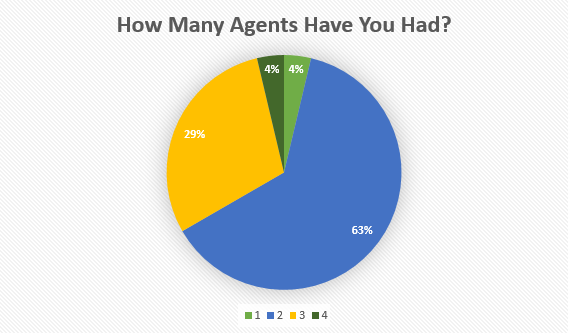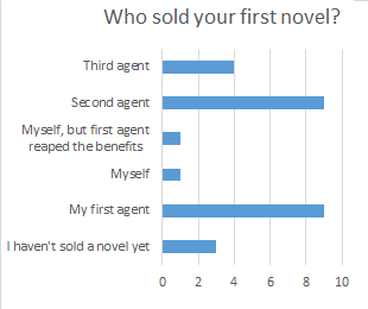|
Publishing is an amazing world, full of luck, opportunity, and so much talent. Authors, agents, and editors share quite a bit about the process, and aspiring folks learn a lot through those facts. But publishing also has a lot of secrets, a lot items we don’t talk about. Going through more than one agent is one of those topics. In my newbie days, before I landed my first agent, I thought of the agent/author relationship as a magical and special unicorn that would last a real long time. And for some, they do. But once I “crossed over” so to speak, and got to interact with agented and published authors, I learned a very common fact somehow missed my attention: most authors have multiple agents over the course of their career. The reasons are vast, but the ultimate bottom line is this: writing is a business. An agent/author relationship is a business one, and anyone who’s held a job knows that there are many reasons why they might leave that job: unhappy working conditions, better opportunities, business closes down, etc, etc. I was thinking of all this as I landed my second agent, and thought about the fun blog post I had made when I landed my first, full of fresh eyed innocence and GIFS and excitement for the future. And I knew I could write a post again, my split with my first agent was amicable and I have nothing negative to write. And yet, I hesitated. This is an area we don’t talk much about. We don’t talk about all the reasons why an author leaves an agent, or an agent drops an author. And I realized I wanted to collect some data, confidentially, so that the results wouldn’t link back to any author or agent. So that is what I did. I collected data from 27 authors who have had more than one agent (or at least left their first agent). I don’t know who filled out the questionnaire, I can’t match up any responses. The goal being to create a safe space to share some details that previously might not be shared. Below are the results: Why did you split with your first (or any previous) agent(s)?
Four responders mentioned their agent quit the business, one had two agents quit, another had an agent retire. The rest are below:
I also asked if there was a specific event that triggered the separation. A few indicated there were, but weren’t comfortable in sharing. The rest are below:
How long did it take to land your next agent?
Did you find querying to be harder or easier the second (or third, etc) time around?
Any negative experiences, or warnings, you'd like to share?
Any positive experiences to share?
Anything else you'd like to add?
I want to thank all the authors who participated. To anyone out there who is finding themselves between agents, or unsure if their current match is the right one, I hope this helps give you some hope and guidance. This is all a normal part of the business. As for me, I happily have my second agent and I'm excited to see where our relationship goes. My journey in between was on the longer side of those surveyed above, which is daunting and full of stress. But I knew more about what matched me as an author and what I needed and that helped me search for the right potential matches. And it was just as GIF worthy when the offer came around! Ultimately, we each never know what the future will hold, but we all deserve to have a good agent/author relationship.
0 Comments
|
AuthorLaura Brown Archives
March 2022
CategoriesAll 2018 Abled Agented Agents Anxiety Audism Audist Authors Best Of Books Christmas Christmas Movies Contemporary Romance Cover Reveal Depression Disability Disabled Diverse Authors Diverse Books Ebook Favorite Books Hanukkah Hard Of Hearing Hearing Aids Hearing Impaired Hearing Loss Holidays Identity Lakewater Press Laura Brown Mental Health New Year Ownvoices Paperback Publishing Recovery Romance Romance Book Romance Novel The Christmas Chronicles Writing Year In Review |
© COPYRIGHT 2015. ALL RIGHTS RESERVED.


 RSS Feed
RSS Feed